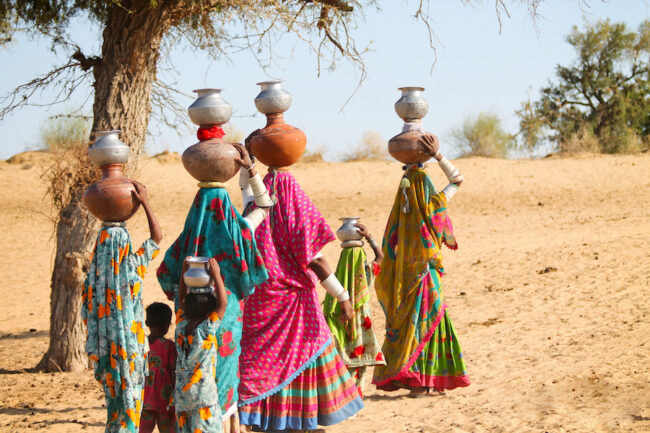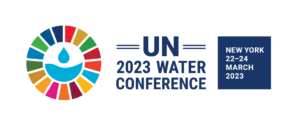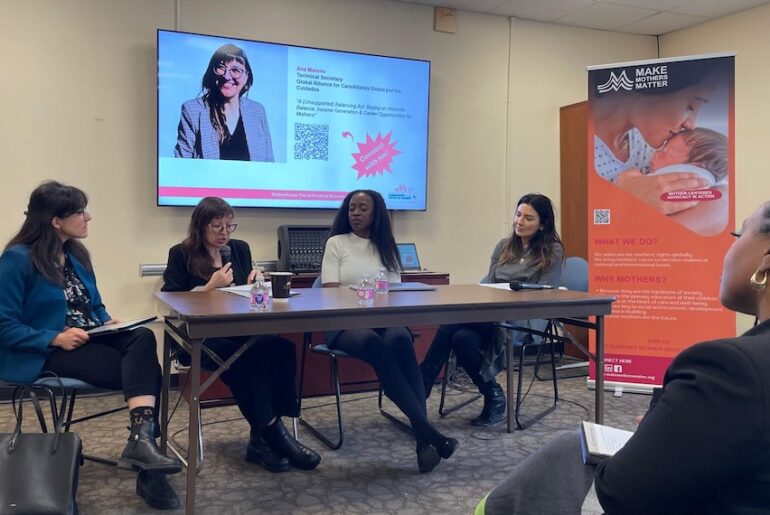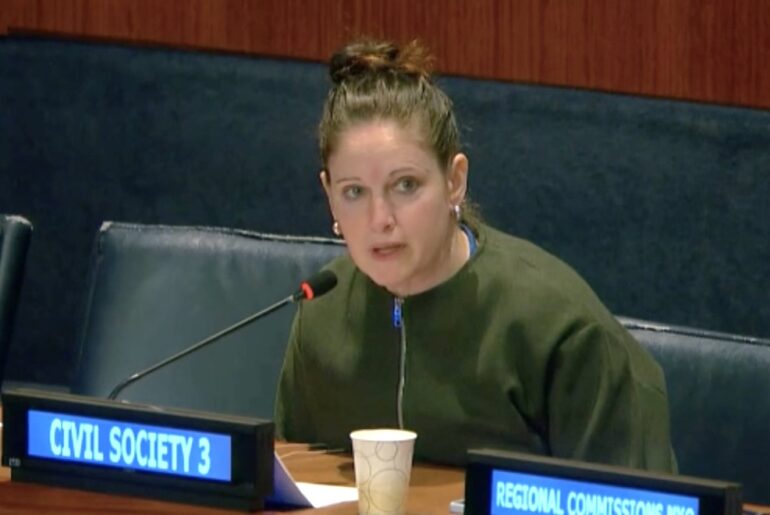200 million hours spent by women and girls fetching water every day
23.03.23
UN New York - On the occasion of the World Water Day and the UN Water Conference, MMM highlights the impact of the lack of access to safe and clean water on women's unpaid care work. This is a key barrier to the realization of their rights, in particular the right to work and the right to participate in public life. We call for Gender disaggregated Time-Use data to be collected and used when planning and developing water infrastructure, so that it results in a reduction of the drudgery work of fetching water.

 The following is the statement we delivered during the Stakeholder Consultation that was held in October 2022 as part of the preparatory process for the UN Water Conference taking place 22-24 March 2023.
The following is the statement we delivered during the Stakeholder Consultation that was held in October 2022 as part of the preparatory process for the UN Water Conference taking place 22-24 March 2023.
According to UNICEF, women and girls collectively spend 200 million hours fetching water every single day – far more than men and boys.
Collecting water is tedious and it adds to the unpaid domestic and care work whose inequitable distribution is at the root of Gender inequalities. For women and girls, the opportunity costs of collecting water are high, with far reaching effects:
- For girls, it means less time spent at school or dropping out of school altogether – at the expense of their future prospects
- For women, in particular when they are mothers, it means less time for income generating activities, which increases their vulnerability to poverty and violence
Gender disaggregated Time-Use data is critically important to develop public water infrastructure and services that will reduce the time and efforts that women and girls put into this strenuous and unpaid work.
Time-Use data already underlies target 5.4. of the UN 2030 development agenda, and Member States have committed to ‘Recognize and value unpaid care and domestic work through the provision of public services and infrastructure‘.
Unfortunately Time-Use Surveys are seen as complex and expensive, and according to the ILO, only 72 countries have conducted such surveys at least once, with only 27 of those having done so at least twice.
We therefore urge Member States to assess Gender disaggregated Time-Use when investing in water infrastructure and to explicitly aim efforts at reducing the time that women and girls spend in collecting water.
More generally, we are calling on Member States to prioritize target 5.4 and invest in Time-Use Surveys as these are very relevant to several SDGs: not only SDG 6 (water and sanitation) and SDG 5 (gender equality), but also SDG 1 (poverty), SDG 3 (health), SDG 4 (education), SDG 7 (energy), SDG 8 (decent work), SDG 9 (infrastructure), SDG 10 (inequality), and SDG 13 (Climate change).
Time Poverty and the Motherhood Penalty
Unveiling Economic and Social Injustices
09.07.24
Mothers play an essential role in families by ensuring their loved ones are nourished, educated, and healthy, but their unpaid care work often leads to economic and social injustices, known
Envisioning care as a common thread to global crises
29.07.24
UN New York - Our virtual HLPF side-event brought together experts to shed light on how the various global crises we face (in particular climate change and other environmental crises,
We call for multi-stakeholder approach to recognise and support unpaid care work
21.07.24
UN New York - Participating in the meeting of the UN Economic and Social Council (ECOSOC) on care and support systems, MMM reaffirmed the principle of co-responsibility, which should underpin








